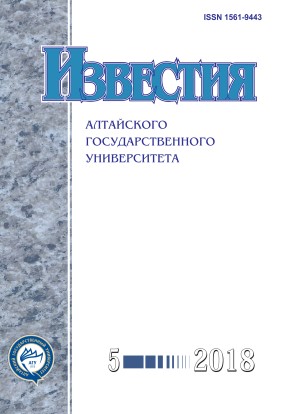The Main Practices of Interaction of the Bashkir and Kazakh Peoples in the Ethno-cultural Sphere (the Second Half of the 19th — Beginning of the 20th Century)
Abstract
The article is devoted to strengthening of cultural interrelations between the Bashkirs and Kazakhs at the turn of the 19th — 20th centuries. In Kazakhstan Tatars and Bashkirs, the Russian pioneers, served as the main conductors of the spiritual and material culture of the European population. It was with their active participation that the construction of Muslim religious institutions in the steppe began and the first schools were opened. Kazakh schools — mektebe — during the period under review were predominantly nomadic small educational institutions, where the education was performed by one literate person, Mulla, usually invited by the local rich man. So hundreds of Tatar and Bashkir students tried to travel to the Kazakh steppes in the summer to teach children to read and write. Along the way, they collected the best samples of local folklore, joined the creativity of Kazakh folk akyns. This situation resulted from a relatively higher literacy rate among the Bashkirs. Subsequently many of these teachers left a notable mark in the history of Bashkir literature. Among them were M. Akmullah, M. Gafuri, Sh. Babich, S. Kudash and its other classics, who recalled with gratitude this experience, which was undoubtedly positive for both cultures.
Downloads
Metrics
References
Ислам на краю света. История ислама в Западной Сибири : в 3 т. — Т. 3: Трансформация уммы в XIX-XX вв. / А.П. Ярков, И.Б. Гарифуллин и др. — М., 2015.
Лысенко Ю.А. «Татарский вопрос» в конфессиональной политике Российской империи в Казахстане (конец XVIII — начало XX в.) // Известия Алтайского гос. ун-та. — 2010. — № 4/3.
Ремнев А.В. Татары в казахской степи: соратники и соперники Российской империи // Вестник Евразии. — 2006. — № 4.
Султангалиева Г. «Татарская» диаспора и конфессиональные связи казахской степи (XVIII-XIX вв.) // Вестник Евразии. — 2000. — № 4.
Юлдашбаев Б.Х. Из истории духовного формирования башкирской нации до Октябрьской революции // Из истории Башкирии (дореволюционный период). Ученые записки. — Вып. 35. — Серия Исторические науки. — № 7. — Уфа, 1968.
Краснобаева Н.Л. Уровень грамотности населения Казахстана в конце XIX — первой половине XX в. // Россия, Сибирь и Центральная Азия: взаимодействие народов и культур : материалы III Межд. научно-практич. конф. / под ред. В.С. Бойко. — Барнаул, 2001.
Валиханов Ч. Смерть Кукотай хана. Статьи и заметки. — Семипалатинск, 2001.
История и культура Башкортостана : хрестоматия. — Уфа, 2008.
Мамытов С.А. Кыргызско-татарские литературные связи второй половины XIX-XX веков. — Бишкек, 1999.
Башкортостан : краткая энциклопедия. — Уфа, 1996.
Кудаш С. Незабываемые минуты : воспоминания. — М., 1964.
Тагиров Т. Суровая проза жизни : воспоминания. — Уфа, 2004.
Традиционное казахское общество в национальной политике Российской империи: концептуальные основы и механизмы реализации (XIX — начало XX в.) : документы и извлечения. — Барнаул, 2014.
Анов Н. Ак-Мечеть : исторический роман. 5-е изд. — Алма-Ата, 1965.
Сафуанов С.Г. Межнациональные связи башкирской литературы. — М., 1979.
Izvestiya of Altai State University is a golden publisher, as we allow self-archiving, but most importantly we are fully transparent about your rights.
Authors may present and discuss their findings ahead of publication: at biological or scientific conferences, on preprint servers, in public databases, and in blogs, wikis, tweets, and other informal communication channels.
Izvestiya of Altai State University allows authors to deposit manuscripts (currently under review or those for intended submission to Izvestiya of Altai State University) in non-commercial, pre-print servers such as ArXiv.
Authors who publish with this journal agree to the following terms:
- Authors retain copyright and grant the journal right of first publication with the work simultaneously licensed under a Creative Commons Attribution License (CC BY 4.0) that allows others to share the work with an acknowledgement of the work's authorship and initial publication in this journal.
- Authors are able to enter into separate, additional contractual arrangements for the non-exclusive distribution of the journal's published version of the work (e.g., post it to an institutional repository or publish it in a book), with an acknowledgement of its initial publication in this journal.
- Authors are permitted and encouraged to post their work online (e.g., in institutional repositories or on their website) prior to and during the submission process, as it can lead to productive exchanges, as well as earlier and greater citation of published work (See The Effect of Open Access).








